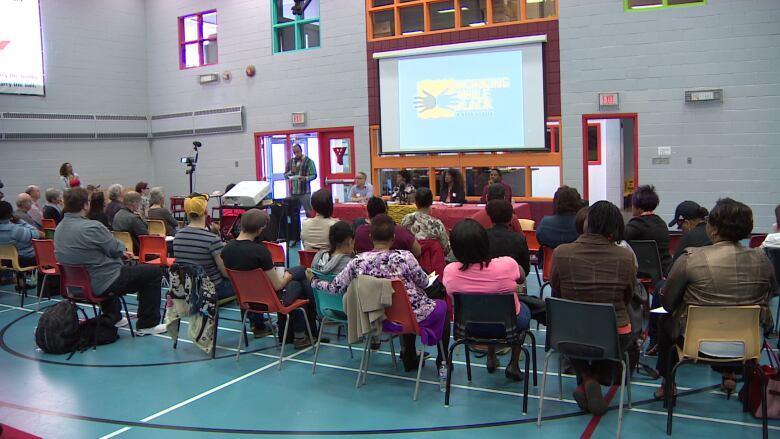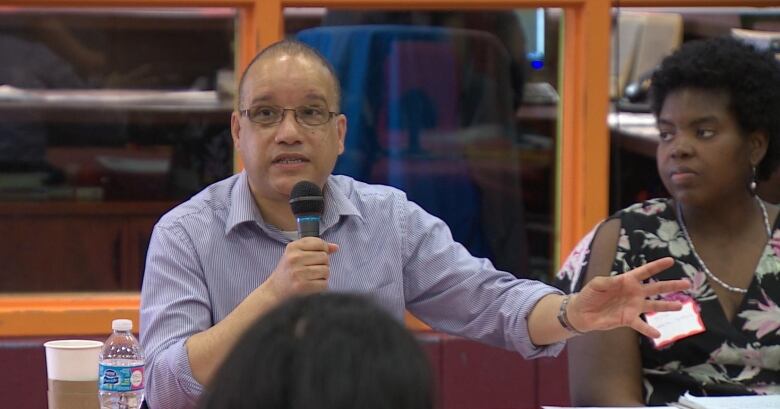Working While Black symposium in Halifax focuses on workplace racism
Symposium aimed to create a space for people to discuss their stories of racism in the workplace

About 40 people gathered in north-end Halifax on Saturday to discuss racial discrimination at the first Working While Black symposium.
The goal of the symposium, held at the Community YMCA on Gottingen Street, wasto create a space for people to share and discuss their stories of racism in the workplace.
Shelly Fashan worked as a government employee for many years and says though things are changing for the better, she was often treated differently because of her race.
"Re-examine your hiring. Look at your organization. Do you have black people in there? If not, why not?" she said.
- Former lieutenant-governor Mayann Francis says she faces racial profiling
- Racist comments frustrate international students in Nova Scotia
Focus on education
Working While Black's website has been used to publicly disclose stories of workplace racism in Nova Scotia since 2014. Saturday's symposium was meant to further analyze those stories from the past and present.
Isaac Saney,senior instructor of Black Studies at Dalhousie University, referenced a report published in October 2015 about Aboriginal and Black Canadian student access and retention.
"In 2011, African Nova Scotians had a rate of unemployment higher,14.5 per cent,than the rest of Nova Scotia,9.9 per centand higher than African Canadians across Canada," he said.

"If, to paraphrase Malcolm X, 'education is the passport to the future'then a significant portion of African Canadians remain without the necessary means by which to move forward in Canadian society."
'We can do better'
One of Saturday's keynote speakers, Mohammed Yaffa, moved to Halifax from Sierra Leone 16 years ago. It was the first time he felt discriminated against because of his skin colour, he said.
"I think we should have this [symposium] more often. It will help bring people out of their cocoons. Once people hear these stories they will empathize. And we can do better," he told to group.
Finding solutions
After the panel discussions, attendees broke into smaller groups to have frank discussions about solutions to what they say is an endemic history of workplace racism in Nova Scotia.

"Coming here and finding that the colour of your skin can dictate sometime in peoples's minds how you should be treated, and what privileges you can get and what kind of employment you can get and whether you can be promoted or notthese are big challenges and they don't go away. They have been lingering for generations," Yaffa said.
Working While Black organizers say this year's symposium was so successful that it could become an annualevent.
With files from Steve Berry












_(720p).jpg)


 OFFICIAL HD MUSIC VIDEO.jpg)
.jpg)



























































































